
Overview
This is a service design project in collaboration with NatWest Group.
The brief asks the following question:how might we help people
coming into adulthood learn to
wield their new agency to find a
balance in a way that respects
their own individual priorities?
This is a 10-week project in a group of 5. We spent the first 7 weeks researching, extracting insights, and refining our problem statement. In the last 3 weeks, we validated and developed our ideations with continuous prototyping, user testing, and iteration.
In this design process, I worked as the project manager and kept track of the timeline and deliverables. I was also responsible for business modelling, system mapping, wireframing and copy-writing.
Link to FigJam board
Link to Presentation
ROLE
UX Designer
Service Designer
Researcher
Project Manager
TOOLS
Figma, Adobe Illustration
TIMELINE
Nov 3 2023 - Feb 16 2023 (10 weeks)
SKILLS
User Research/Primary & Secondary Research/Ideation/Prototyping/User Testing/Business Model/Stakeholders Mapping/Interview/Leadership/Team Work/Client Presentation/Project Management

The Problem
Under the age of rapid technology advancement and information explosion, Generation Z has grown to be the most aware generation about the ethical conundrum we face.
GenZs feel the responsibility to make sustainable consumption choices, but at the same time they don’t want to, because they can’t see their individual impact, which makes them feel anxious and hopeless.
In other words, GenZs are ethically aware but not ethically driven for sustainability, and this has led to an intention-action gap.
The Solution
Zenius is a revolutionizing banking app that empowers GenZs to align their purchasing behaviors with their sustainable values. It is created by GenZ, for GenZ.
The core features include eco-personality tests, carbon footprint goal-setting, AI-suggested sustainable alternatives. Through these features, we are providing a mirror to let our users to see themselves, and thus be more aware of their choices. We also incorporated a reward system, incentivizing them to form long term sustainable habits.
Stage 1: Desktop Research︎︎︎
In order to get the first impression of the problem space, we used brainstorming and affinity mapping to describe Generation Z. Meanwhile, we carried out intensive desktop research around different topics, including mental health, identity, unemployment, technology, and climate change.
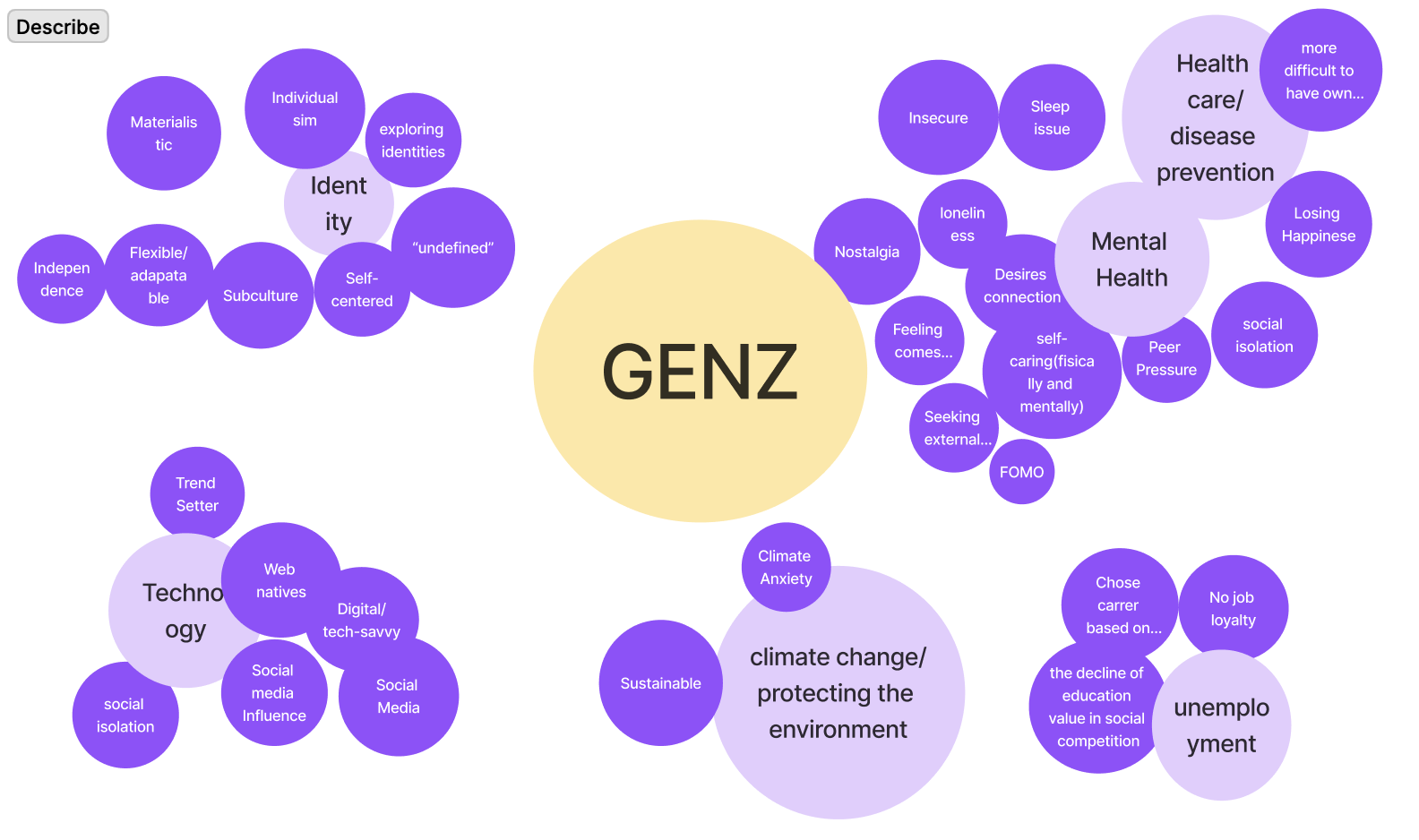

From here, we derived a few insights about Generation Z:
GenZs...
find their values from purchasing.
are ethically, socially and sustainably conscious and want to make more mindful purchases, but are hesitant on spending large amount of money on long term investments.
are uncertain and pessimistic about the future.
want to actively participate in change.
are an adaptive generation.
follow the trends because they have a fear of missing out (FOMO).
are impatient and desire instant gratification.
have an instinct for digital authenticity due to tech dependency.
identify & present themselves in diverse ways beyond the labels.
are aware of their physical & mental well-being.
value the meaning and experience of their work (environmental protection, public interest..) and prefer to work for a purpose.
Stage 2&3: Exploration︎︎︎
To better understand GenZ’s ‘state of flux’, we carried out 20 interviews targeting UK-based GenZs from 18 to 24 years old in various locations across London.
The scope of this interview is GenZ’s information reception and decision-making process when transitioning to adulthood, as well as their long-term plans for the future.
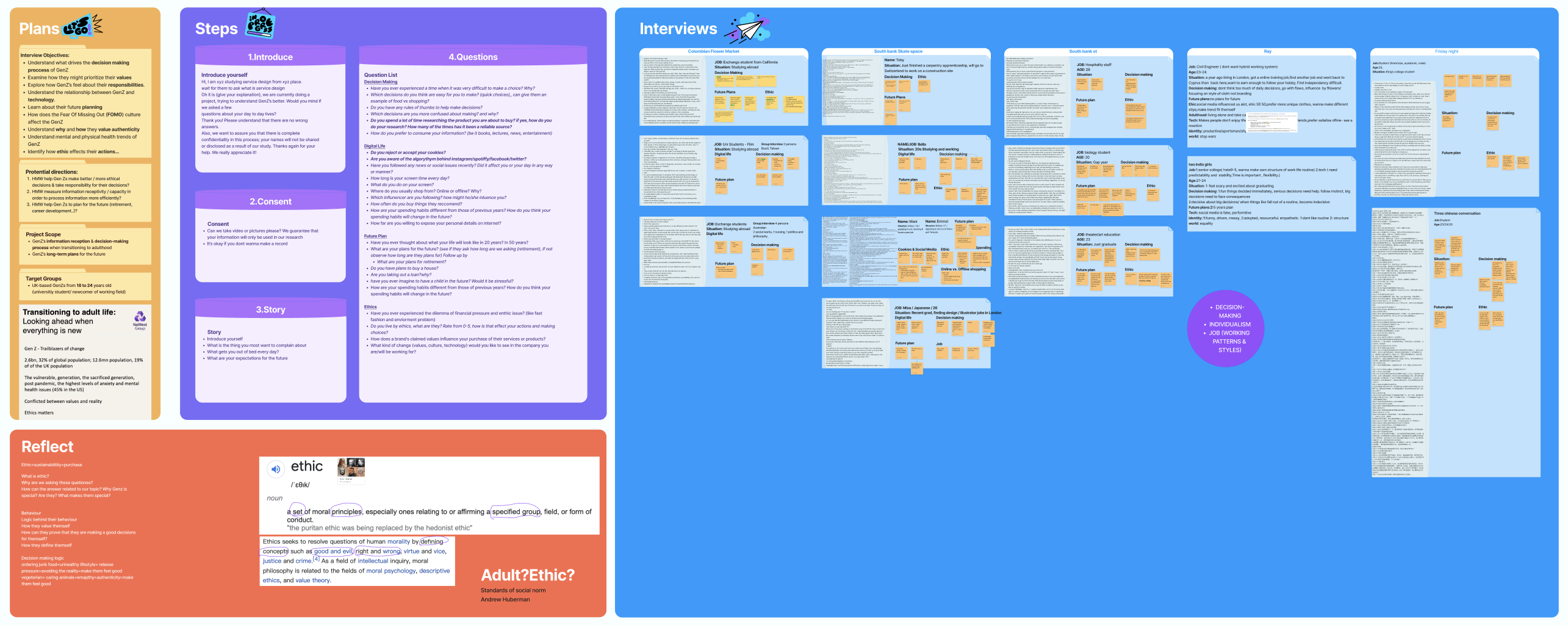
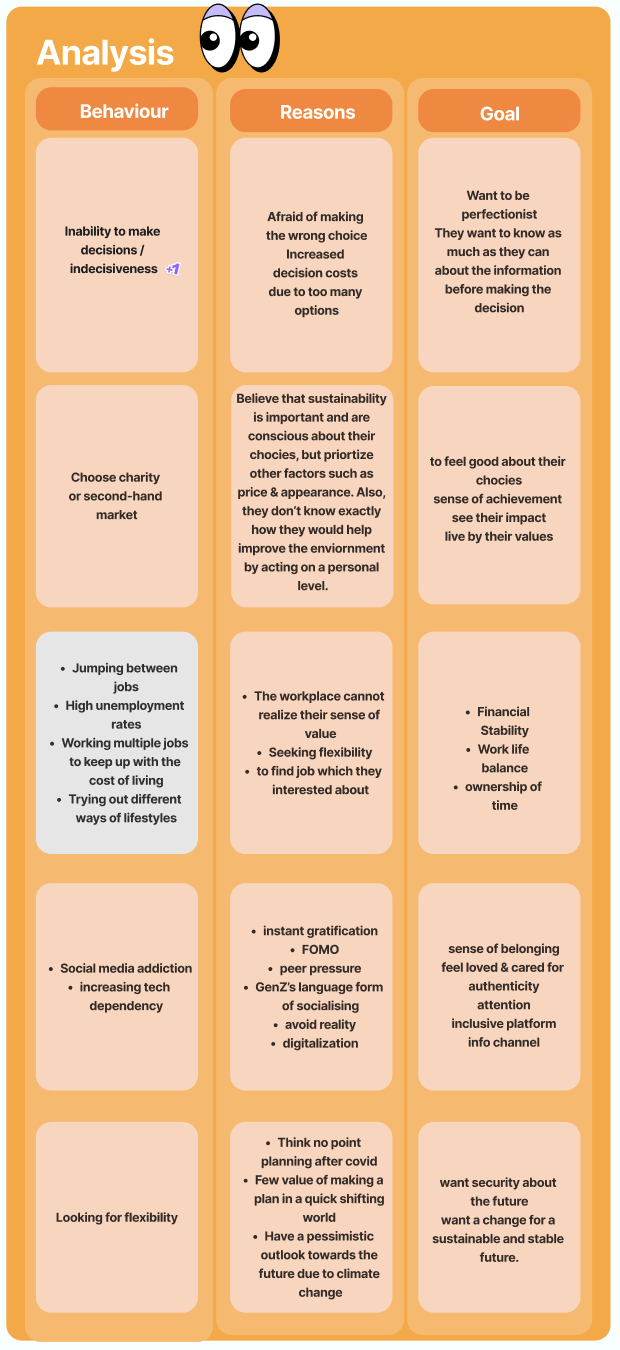
After analysing the interviews, we realized that we still didn’t get to the root causes of the problems. We decided to do more desktop research and carrry out another round of interviews and use the ‘5 WHYs’ - ask at least five ‘why’s - to understand what is driving the behaviors, so that we can start narrowing down when we discover something new.
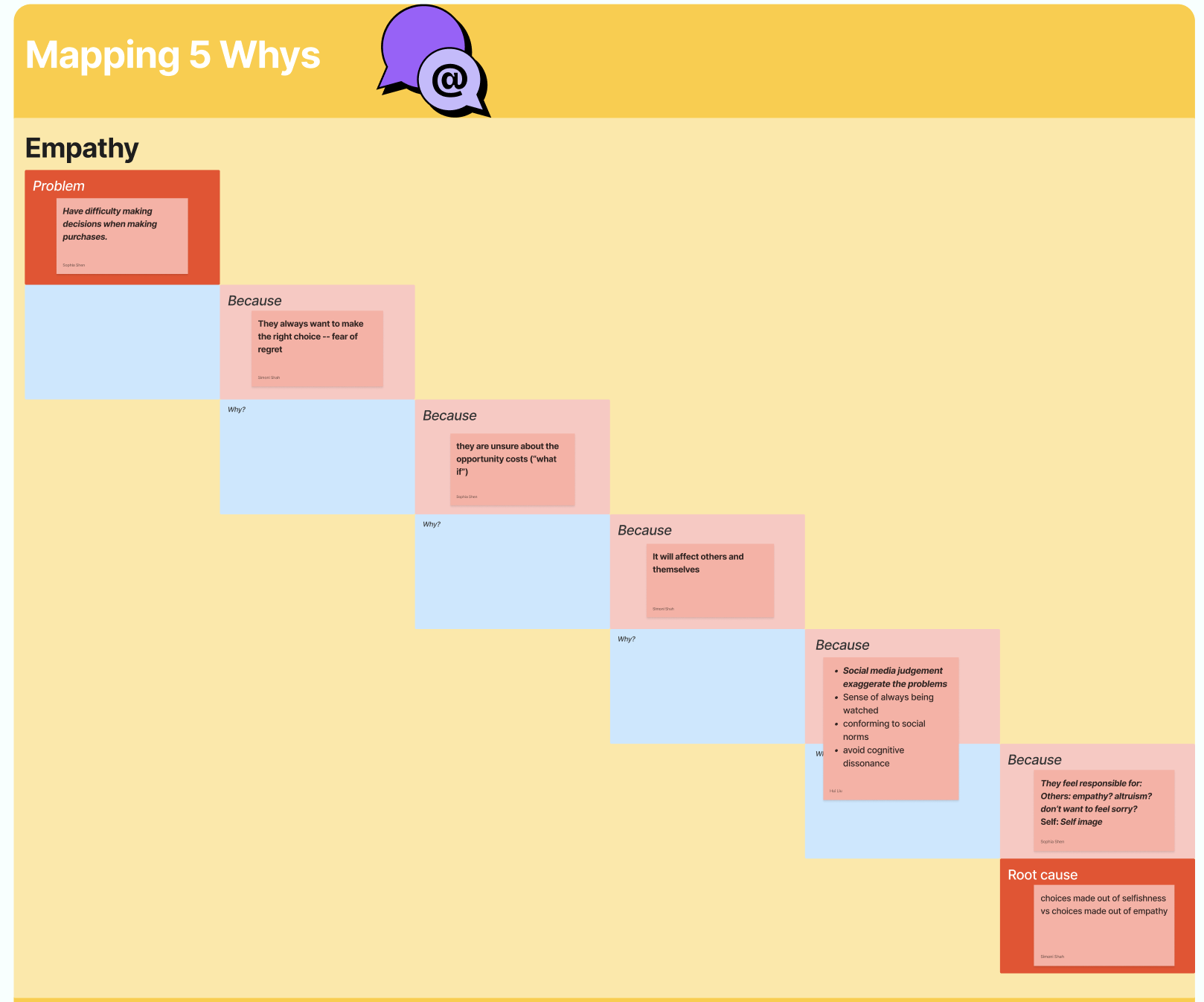
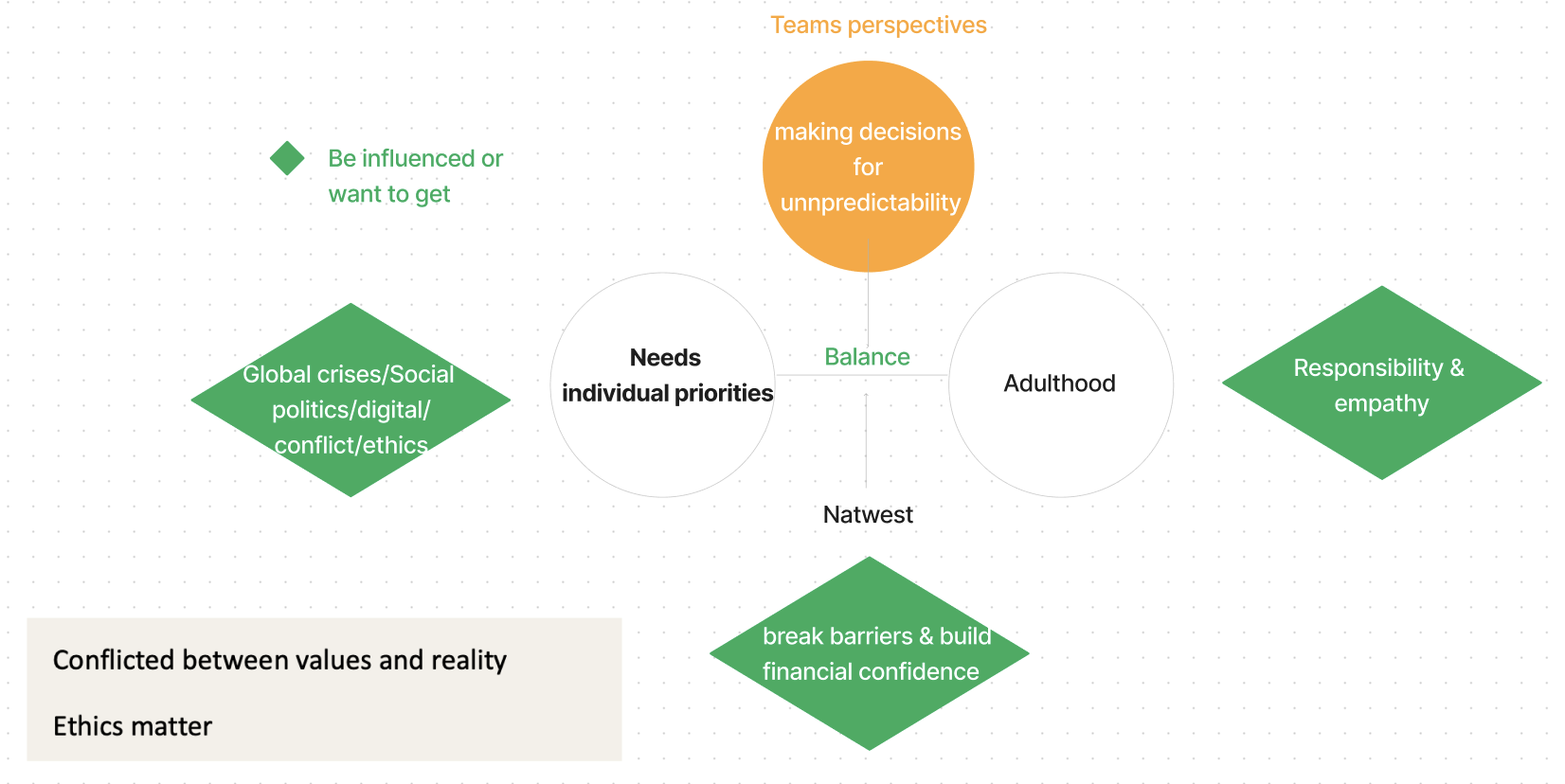
Protential directions:
1. How might we help GenZs make better / more ethical decisions and take responsibility for their decisions?
2. How might we measure information receptivity / capacity in order to process information more efficiently?
As a team of five, we spread out to 7 locations across London, spent a week to conduct 34 interviews, and got 599 minutes of interview content.

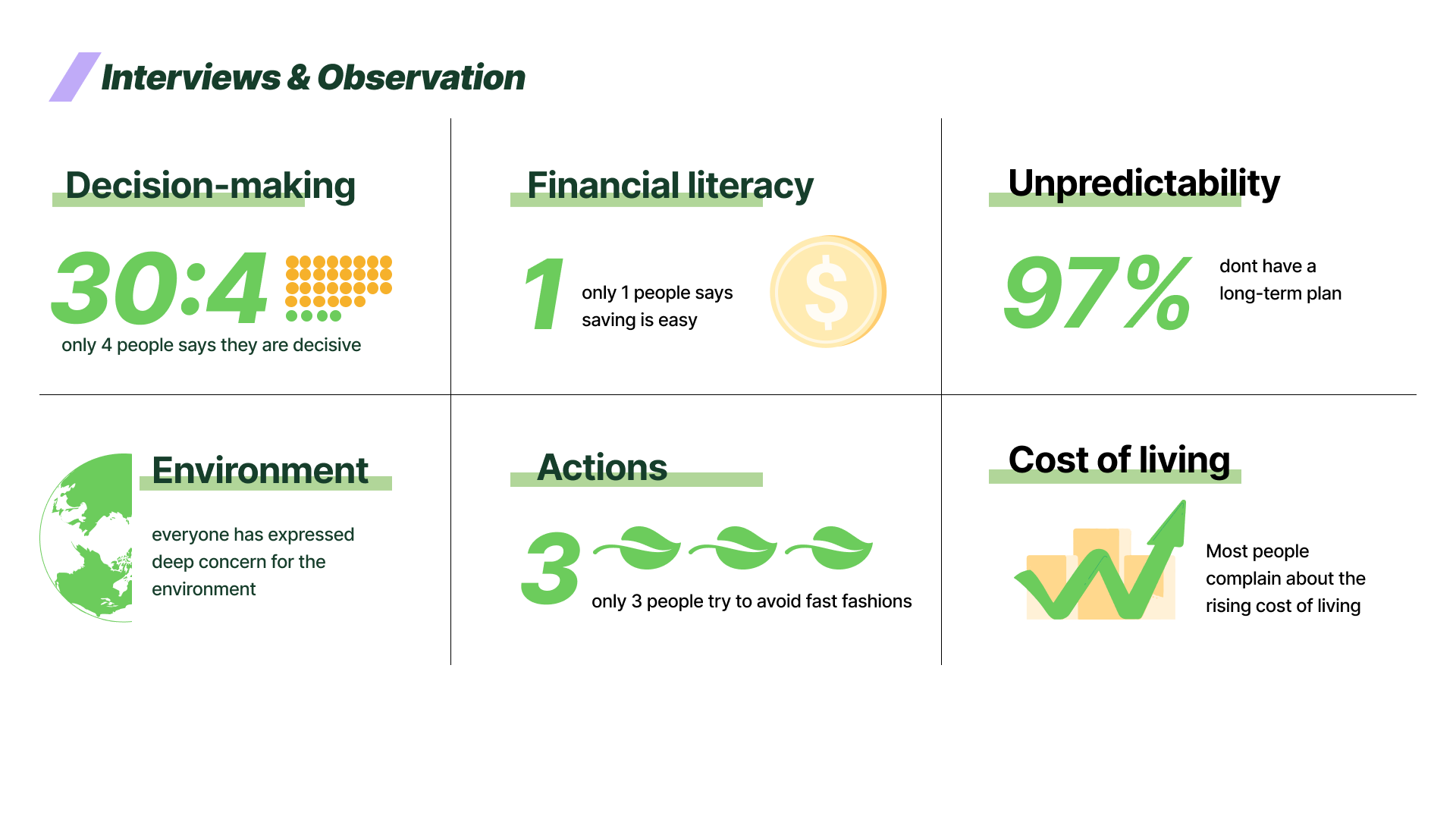
From there, we derived our key insight and problem statement.
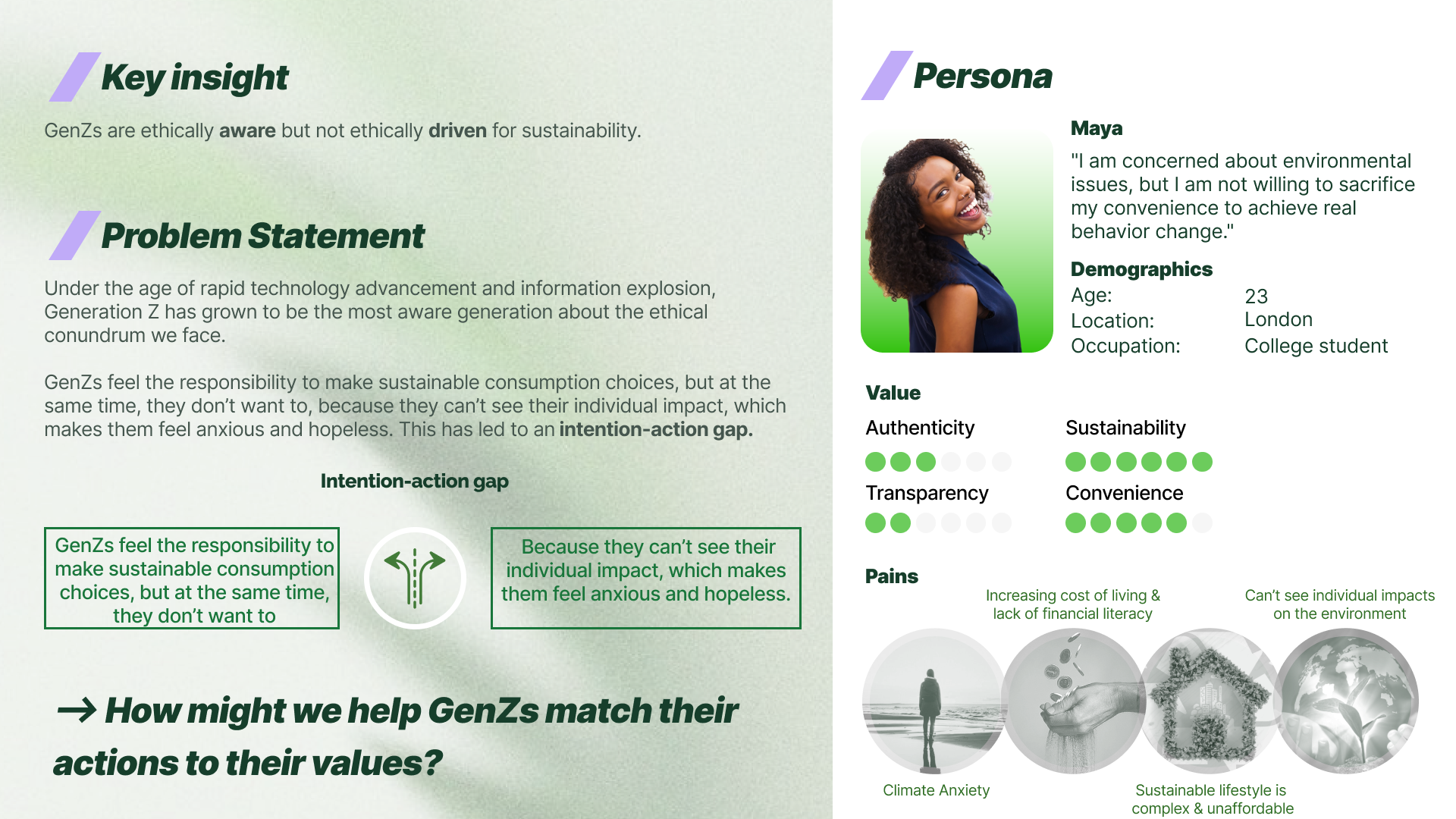
Stage 4: Creation︎︎︎


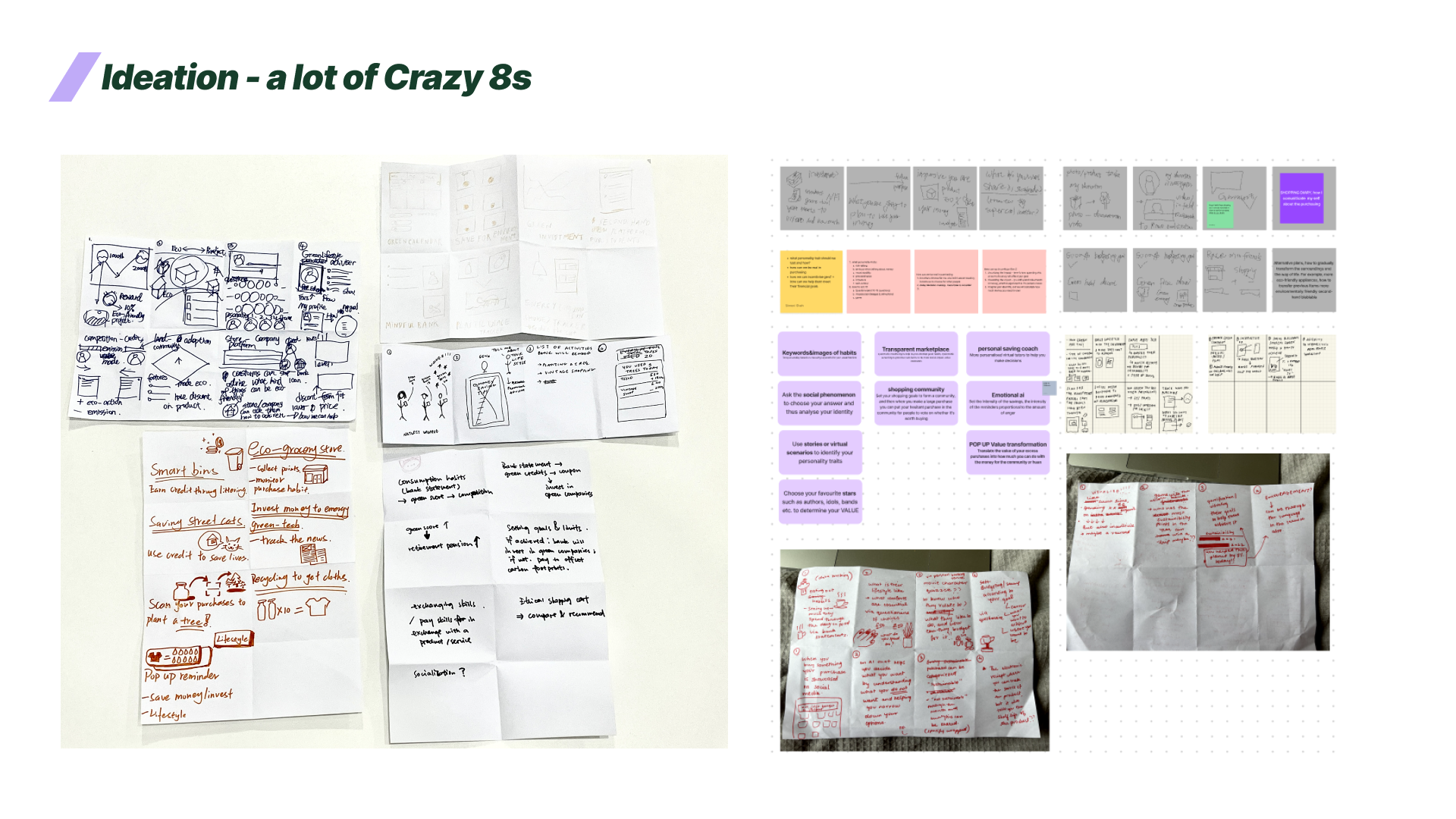
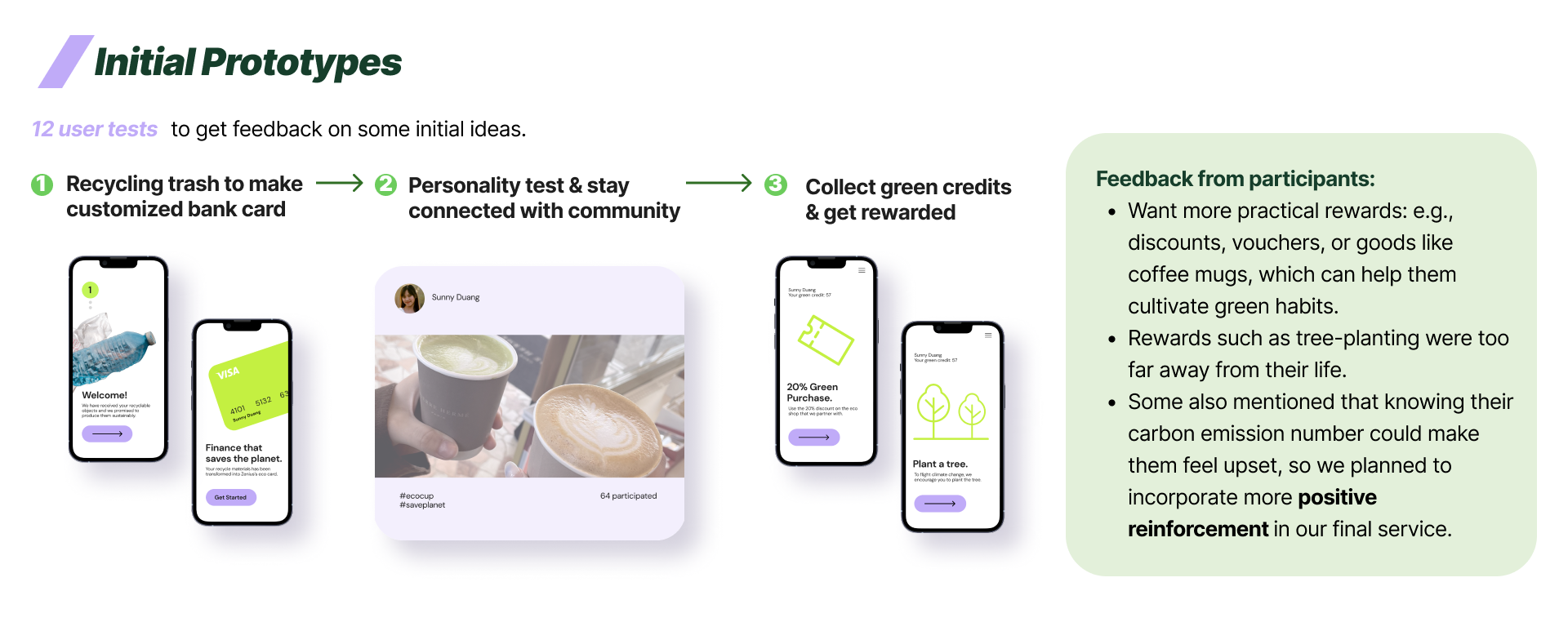
Stage 5: Final Prototype & Interation︎︎︎
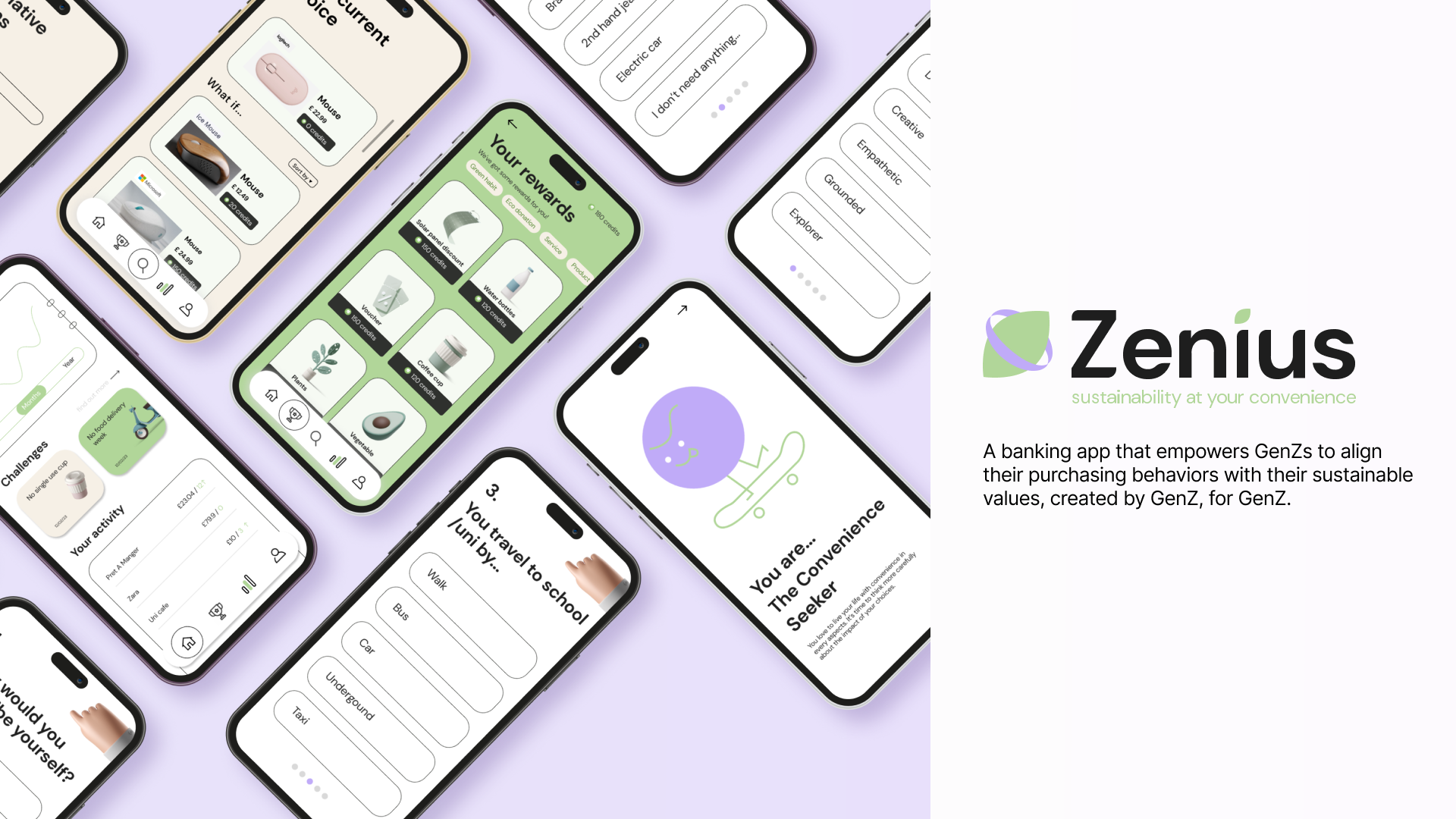
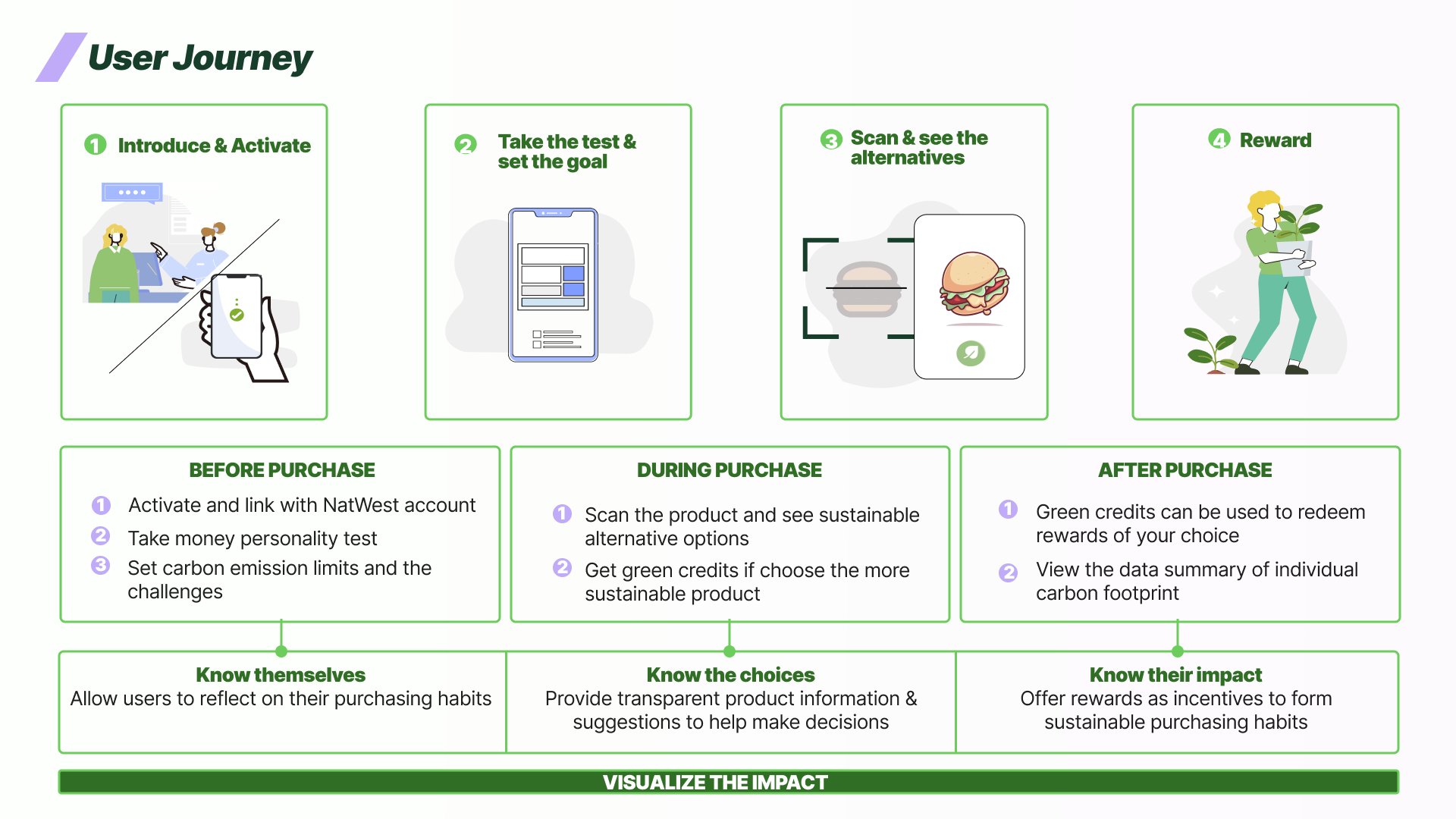
Zenius has four core features: the personality test, carbon emission goal-setting, rewards system, and the smart suggestions of alternative green options.
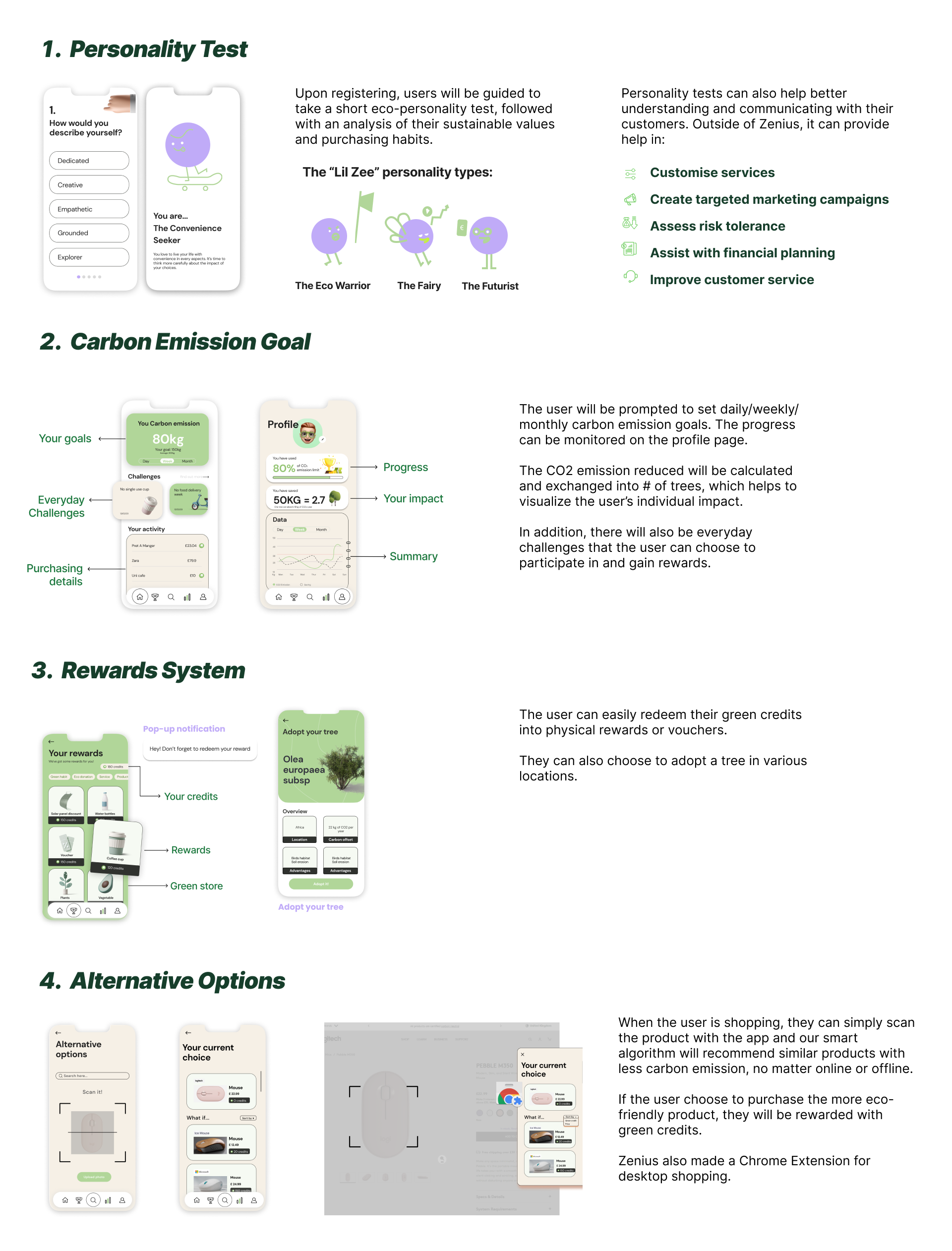
Since now we have Zenius, here is what the new system map looks like:
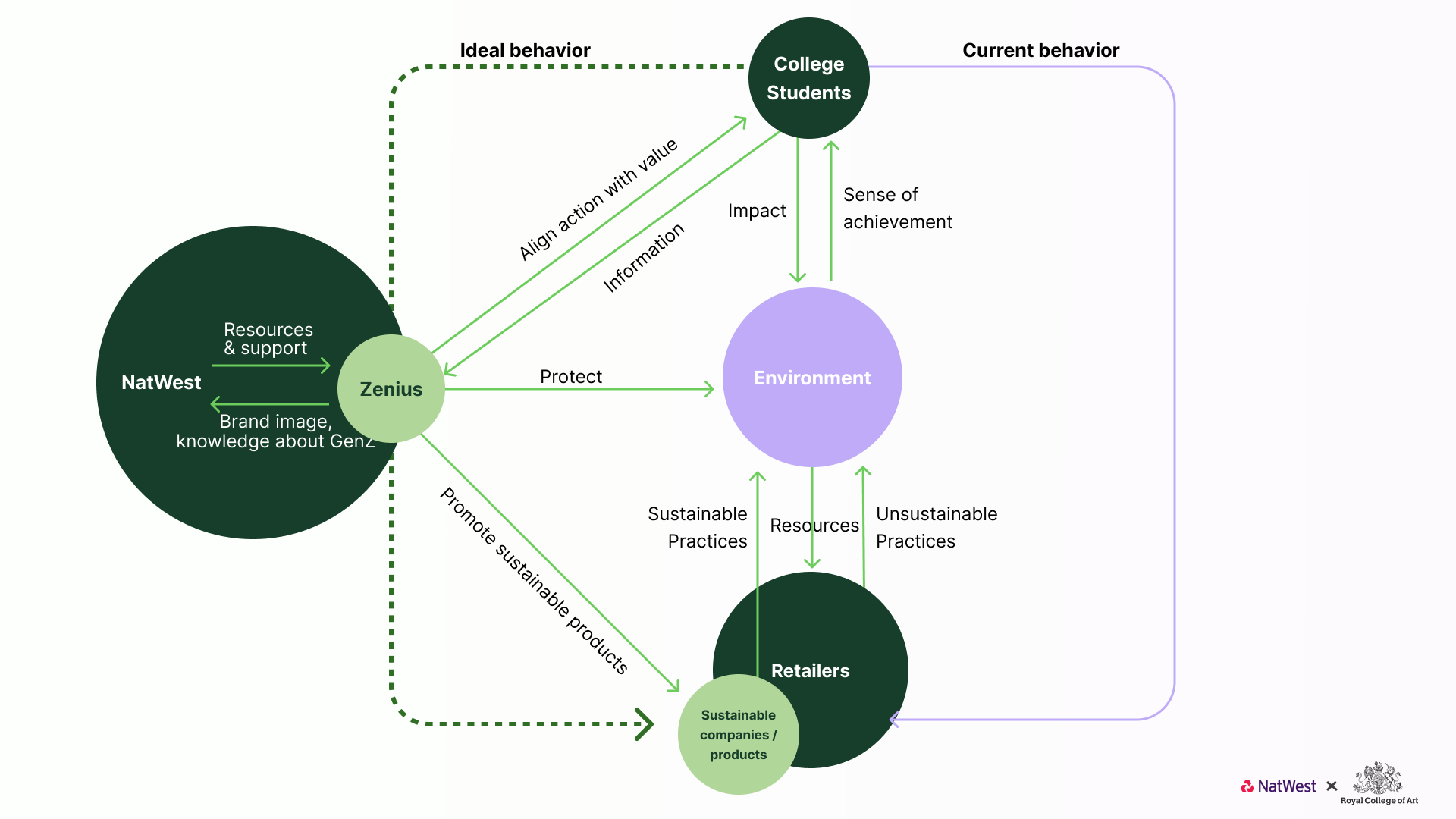
For GenZ college students, we are helping them to align their actions with value.
For NatWest, we are providing more knowledge about GenZ, and thus building their brand image, gaining more GenZ users and more customer life time value.
For retailers (especially sustainable retailers), we are providing with performance data analysis and promotion, encouraging them to produce more sustainably and sell more efficiently.
Together, we are creating values to protect the environment. Since there is no planet B, the environment is our biggest stakeholder.
As we can see, through Zenius, GenZ college students can switch from their current behavior to achieve their ideal behavior.
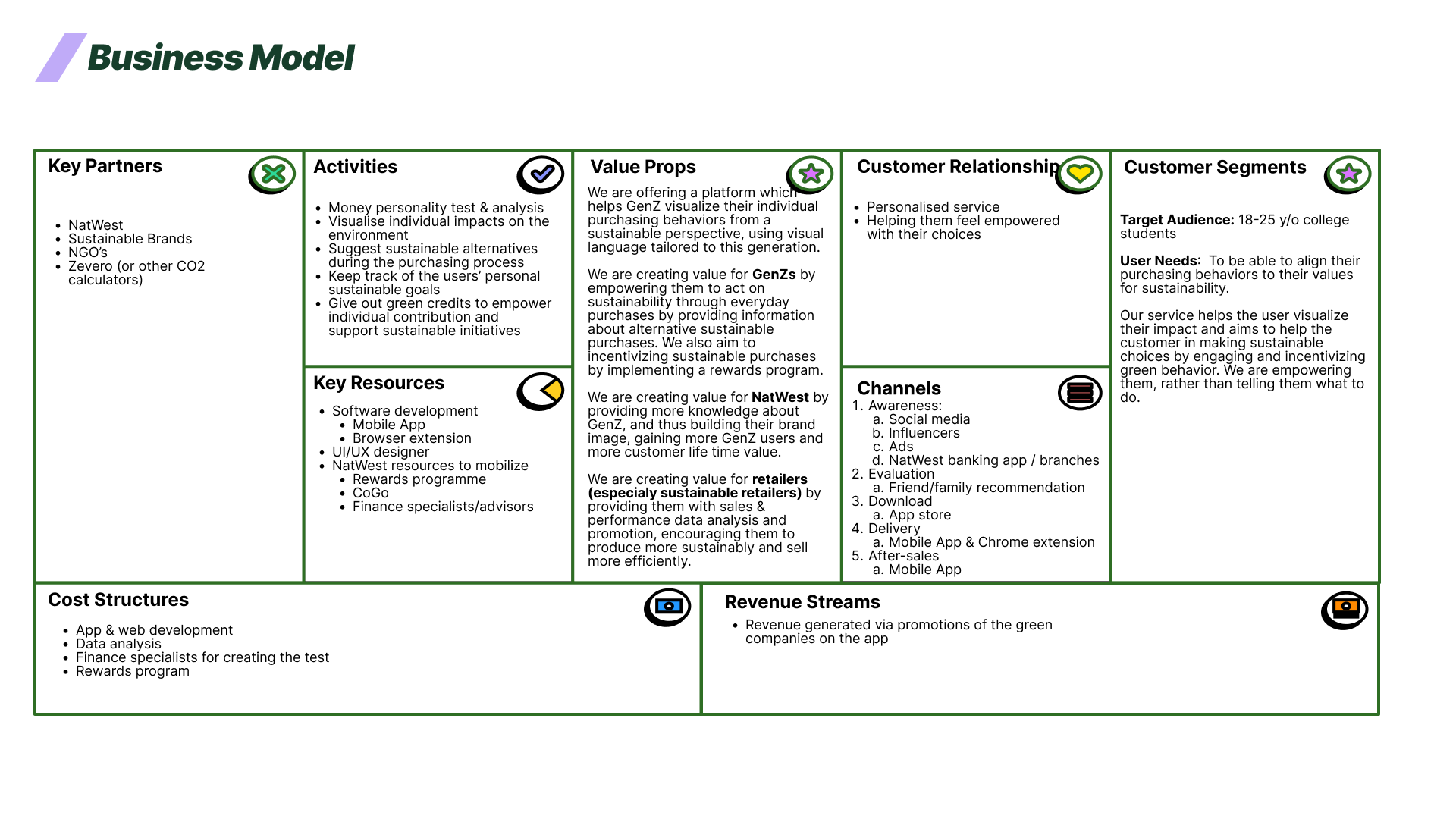
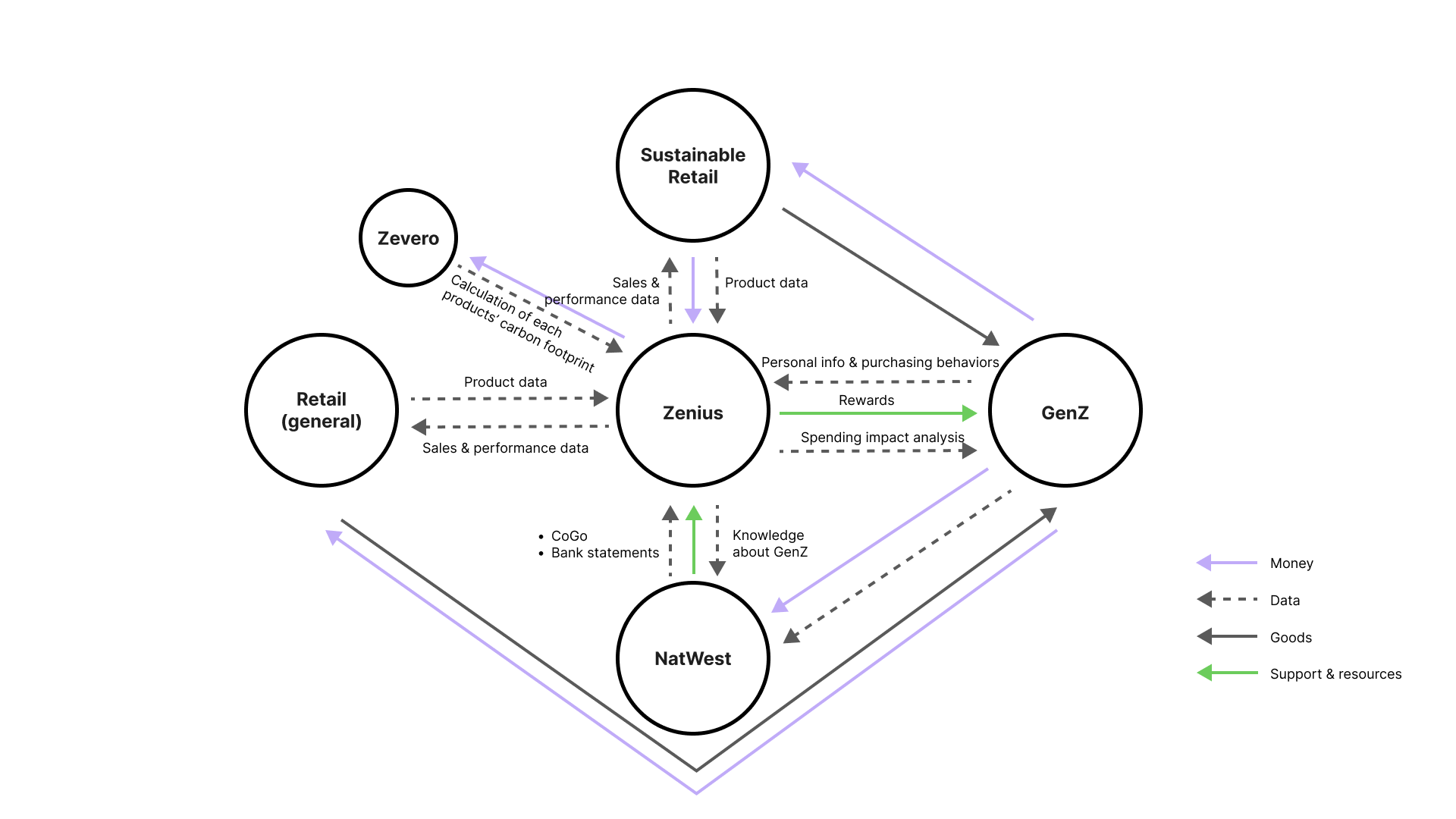

The Fogg Behavior Model is a systematic way to look at behavioral change. It suggests that three things are needed: motivation, ability and a prompt.

Currently, GenZs have a high motivation to change their behavior towards more sustainable shopping, but for them it is hard to do.
Zenius make the three elements come together:
1. The personality test helps the users to position their action line
2. The reward system increases the motivation
3. The alternative options and challenges make it much easier to do.
Just as mentioned before, our service emphasizes on helping GenZ to visualize their impact. We are providing a mirror for them to see themselves, and thus be more aware of their choices.
Stage 6: Reflection︎︎︎
